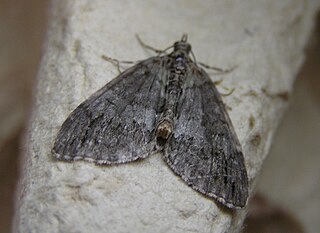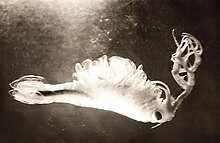
William Redington Hewlett was an American engineer and the co-founder, with David Packard, of the Hewlett-Packard Company (HP).

Stanford University Medical Center is a teaching hospital which includes Stanford Health Care and Stanford Children's Health. It serves as a private hospital for the Stanford University School of Medicine. In 2022–23, it was ranked by the US News as the 3rd-best hospital in California and 10th-best in the country.

Alpheus Spring Packard Jr. LL.D. was an American entomologist and palaeontologist. He described over 500 new animal species – especially butterflies and moths – and was one of the founders of The American Naturalist.

The HP-15C is a high-end scientific programmable calculator of Hewlett-Packard's Voyager series produced between 1982 and 1989.

Calliostoma is a genus of small to medium-sized sea snails with gills and an operculum, marine gastropod molluscs within the family Calliostomatidae, the Calliostoma top snails. Previously this genus was placed within the family Trochidae. Calliostoma is the type genus of the family Calliostomatidae.

Scolopendridae is a family of large centipedes.

Neritidae, common name the nerites, is a taxonomic family of small to medium-sized saltwater and freshwater snails which have a gill and a distinctive operculum. The family Neritidae includes marine genera such as Nerita, marine and freshwater genera such as Neritina, and freshwater and brackish water genera such as Theodoxus.
Pseudocampylaea is a genus of air-breathing land snails, terrestrial pulmonate gastropod mollusks in the subfamily Geomitrinae of the family Geomitridae, the hairy snails and their allies.

Branchinecta is a genus of fairy shrimp in family Branchinectidae. It includes around 50 species, found on all continents except Australia. Branchinecta gigas, the giant fairy shrimp, is the largest species in the order, with a length of up to 10 centimetres (4 in), and Branchinecta brushi lives at the highest altitude of any crustacean, at 5,930 metres (19,460 ft), a record it shares with the copepod Boeckella palustris. A new genus, Archaebranchinecta was established in 2011 for two species previously placed in Branchinecta.
Lucile Packard Children's Hospital at Stanford (LPCH) is a nationally ranked women's and children's hospital which is part of the Stanford University Health system. The hospital is located adjacent to the campus at 725 Welch Road, Palo Alto, California. It was founded in 1991 and is staffed by over 650 physicians with 4,750 staff and volunteers. The hospital specializes in the care of infants, children, teens, young adults aged 0–21, but sometimes treats older adults and expectant mothers. Lucile Packard Children's Hospital is an ACS verified Level 1 regional pediatric trauma center, 1 of 7 in the state.

Cisthene is a genus of lichen moths in the family Erebidae. The genus was erected by Francis Walker in 1854.

Pomacea is a genus of freshwater snails with gills and an operculum, aquatic gastropod mollusks in the family Ampullariidae, the apple snails. The genus is native to the Americas; most species in this genus are restricted to South America.

Udea is a genus of snout moths in the subfamily Spilomelinae of the family Crambidae. The genus was erected by Achille Guenée in 1845. The currently known 216 species are present on all continents except Antarctica. About 41 species are native to Hawaii.

Meterana is a genus of moths of the family Noctuidae. This genus is endemic to New Zealand.

Hydriomena is a genus of moths in the family Geometridae described by Jacob Hübner in 1825.

Fred Jay Seaver was an American mycologist. He worked at the New York Botanical Garden for 40 years, initially as the Director of Laboratories (1908–1911), then as the Curator (1912–1943), and finally as Head Curator (1943–1948). Between 1907 and 1909 he issued two exsiccatae, North Dakota Fungi and Ascomycetes and lower fungi, the later with G. W. Wilson. He was also an editor of the journal Mycologia between 1909 and 1947. In 1928, Seaver published North American Cup-fungi (Operculates), which was expanded with a supplement in 1942 and a second volume in 1951, titled North American Cup-fungi (Inoperculates).
Vittore Benedetto Antonio Trevisan de Saint-Léon was an Italian botanist who specialized in cryptogamic flora. He edited the exsiccata Lichenotheca Veneta.
Erable is a computer algebra system (CAS) for a family of Hewlett-Packard graphing scientific calculators of the HP 40, 48 and HP 49/50 series.
Lynceus is a genus of clam shrimp in the family Lynceidae. There are about 13 described species in Lynceus.

Julie E. Packard is an American ocean conservationist and philanthropist. She helped create the Monterey Bay Aquarium in the early 1980s and is its executive director, a position she has held since its opening in 1984. She speaks at conferences and symposia related to ocean conservation and writes online about current issues. She is a fellow of the American Academy of Arts and Sciences and is a recipient of the Audubon Medal.















